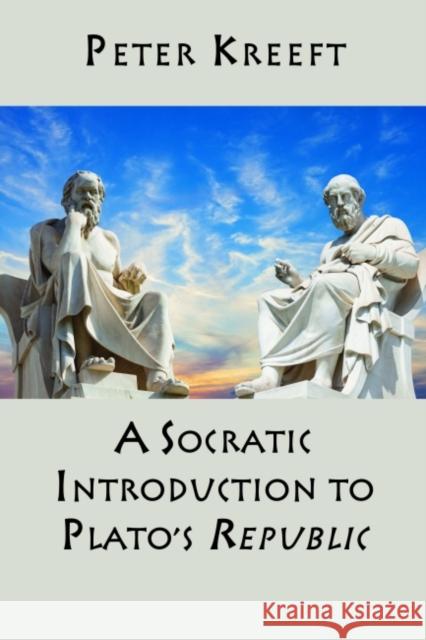A Socratic Introduction to Plato's Republic » książka
topmenu
A Socratic Introduction to Plato's Republic
ISBN-13: 9781587318283 / Angielski / Twarda / 2018 / 128 str.
This book is designed for three classes of people:
- Beginners who want an introduction to philosophy;
- Those who have already had an introduction to philosophy and who would like to see it in action now applied to a great book written by a great philosophy, but who have never read Plato's Republic, the most famous and influential philosophy book ever written;
- Those who have read Plato's Republic before but did not understand its deepest significance.
Peter Kreeft has taught philosophy for over 50 years, including one section of a course for beginners every semester. He has tried just about everything possible, and a few new things that are impossible. He has experimented with every one of the many alternative methods available for teaching beginners. (He has A.D.D., so he easily gets bored and likes to try new things all the time.) But he has never found anything nearly as successful as Plato.
Plato is the best writer in the history of philosophy. Most philosophers are dull, undramatic, abstract writers. (There are a few other exceptions besides Plato: Augustine, Pascal, Nietzsche, Kierkegaard.) But Plato wrote dramatic dialogues, in which Socrates, his famous teacher, interacts with a great variety of fools. These dialogues are like intellectual swordfights, and even though you know Socrates is going to win, they are exciting because you see his ideas come alive, like a sword in the handoff a master. Plato is a great dramatist, a great poet, and a great psychologist as well as a great philosopher. Nobody else who ever lived combined those four talents as well as Plato did.
Apprenticeship to a great master is the best way to learn any art. The student will understand what philosophy is better by watching a master do it than by reading abstract definitions of it from a second-rate philosopher, or by a mere scholar. Concrete examples are always the easiest way to learn things. Plato's dialogues are the world's first, and still the best, concrete example of philosophizing.
Kreeft introduces his students to this love affair through a great matchmaker, Plato, who is a better teacher than the student will ever meet in the land of the living.
In fact, Plato still is in the land of the living. He's still alive and kicking in his dialogues. He rubs off on those who are wise and humble enough to become a student.











